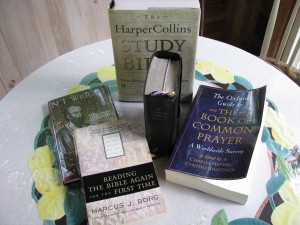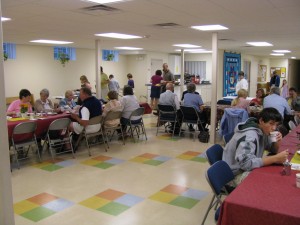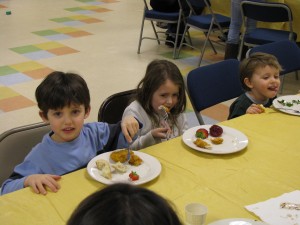The Montessori-based Catechesis of the Good Shepherd is offered to children age 3 to Grade 6 in classrooms (called atriums) located in our old church building. During our formation year, the children enter the atriums at 9:15 a.m. and join the regular service, which begins at 10:00 a.m., at the exchange of the Peace, which is about 10:40 a.m.
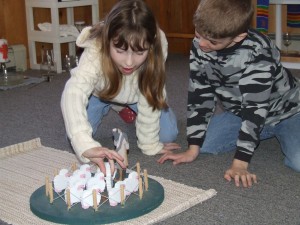
The Catechesis of the Good Shepherd originated in 1954 in Rome, inspired by the Montessori principles of “self-teaching.” This approach to religious education honors the spiritual potential of children and seeks to offer the essentials of the Christian faith in a way that engages and delights them.
An interpersonal relationship is always a mystery, all the more so when that relationship is between God and the child. We believe that there is a deep bond between God and the child which produces in the child the desire to draw near to God.
The role of the catechist — the adult who is with the children in the atrium –is to prepare an environment and to make presentations that call forth the child’s response rather than pour in information. Catechists listen with the child and together ask, “God, who are you? How do you love us?”
Â
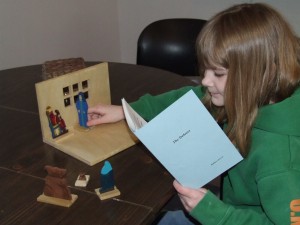
Â
The catechist is a co-wonderer with the children as they together enjoy meditating on the questions generated by the Scriptures with the materials in the atrium as a developmental aid.
To read more about our children’s formation program, follow check out the Website of the National Association of the Catechesis of the Good Shepherd. Anne McCausland is the catechist in the Level 3 Atrium, which is for ages 9-12, Laura Arvin is the catechist for Level 2, ages 6-9, and Laura Starr-Houghton is the catechist for the Level 1 Atrium, age 3-6.
